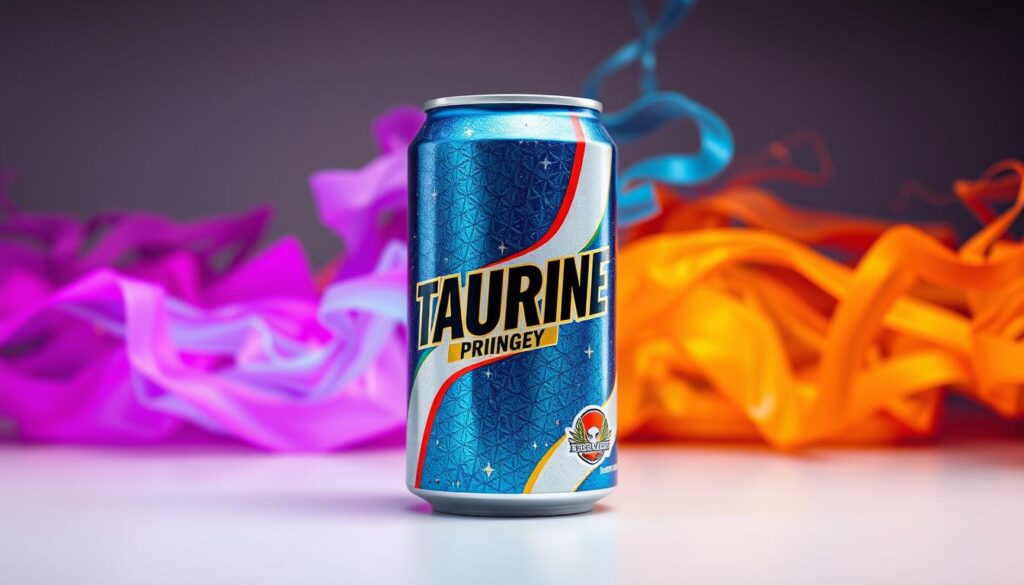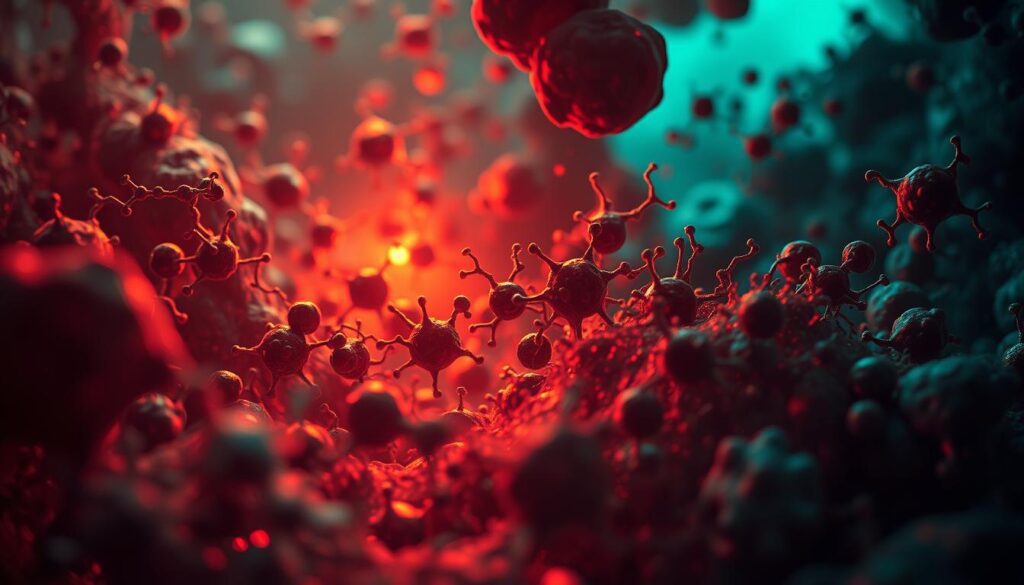
It may surprise you to find that one often used component in energy drinks has been connected to a higher blood cancer risk. Popular energy drinks contain taurine, an amino acid that recent studies by the Wilmette Cancer Institute at the University of Rochester found can drive leukemia cell growth. Although your body naturally produces taurine in places including the brain, heart, muscles, and bone marrow, many commercial products you might come across daily contain this nutrient added to them. This finding clarifies important aspects of blood cancer development and progression for us.
Key Takeaways
- A common ingredient in energy drinks has been linked to an increased risk of blood cancer.q
- Taurine, an amino acid, promotes the growth of leukemia cells.
- Taurine is naturally present in the body but is also added to many commercial products.
- This research provides new insights into the development of blood cancers.
- If you regularly consume energy drinks or supplements containing taurine, you may want to reconsider your habits.
The Surprising Link Between Taurine and Blood Cancer
Scientists have found a surprising link between taurine and blood cancer. Researchers at the Wilmette Cancer Institute, part of the University of Rochester, were studying ways to improve treatments for blood cancer. They stumbled upon this significant discovery.
What Researchers Discovered
The researchers found that taurine, an amino acid commonly associated with energy drinks, is produced by the bone marrow microenvironment. It can be used by leukemia cells to promote cancer progression. “The key takeaway from this study is that taurine can be used by leukemia cells to promote cancer progression,” said Dr. JEE Isha Bajaj, an assistant professor involved in the research.
| Key Findings | Description |
| Taurine Production | Produced by the bone marrow microenvironment |
| Role in Cancer | Promotes leukemia cell growth and cancer progression |
| Research Implication | New understanding of how blood cancers grow and spread |
How the Discovery Was Made
The discovery was made by happenstance while the researchers were investigating the bone marrow environment.
“Our finding that taurine can be produced by the bone marrow microenvironment was completely unexpected and, therefor, surprising,” Dr. Bajaj noted. This unexpected discovery has opened new avenues for understanding the progression of blood cancers.
How Taurine Fuels Cancer Growth
Taurine’s role in fueling cancer growth is a critical area of research. It has led to some surprising discoveries. You might be wondering how a compound found in energy drinks and naturally in the body could be linked to cancer. Researchers have been studying this connection, and their findings have significant implications for understanding and potentially treating certain types of blood cancers.
Understanding the Glycolysis Process
The process by which taurine fuels cancer growth involves glycolysis. This is a metabolic pathway that breaks down glucose to produce energy for the cells. In leukemia cells, taurine promotes glycolysis, giving these cancer cells the energy they need to grow and multiply. This is a critical aspect of how taurine supports the proliferation of leukemia cells.
To be more specific, when taurine is transported into leukemia cells via a gene called SLC6A6, it enhances their glycolytic activity. This means that the presence of taurine is essential for the energy production in these cells. It makes it a possible target for therapeutic interventions.
Types of Blood Cancers Affected
The research indicates that taurine’s impact is significant in certain types of blood cancers. These include acute myeloid leukemia (AML), chronic myeloid leukemia (CML), and myelodysplastic syndromes (MDS). By promoting glycolysis, taurine contributes to the growth and proliferation of the cells associated with these conditions.
- Acute myeloid leukemia (AML) is a type of cancer that affects the blood and bone marrow.
- Chronic myeloid leukemia (CML) is another condition where taurine plays a role in the progression of the disease.
- Myelodysplastic syndromes (MDS) are a group of disorders caused by poorly formed or dysfunctional blood cells.

Energy Drink Ingredient Tied to Blood Cancer Risk: What You Should Know
With the rising popularity of energy drinks, the health implications of their ingredients, like taurine, need closer examination. You might be consuming taurine regularly without realizing it. It’s a common ingredient in many energy drinks and supplements.
Common Products Containing Taurine
Taurine is found in many products you might consume regularly. This includes popular energy drinks like Red Bull and Celsius, as well as in protein powders and supplements marketed for workout recovery. You should be aware that these products often list taurine as a key ingredient.
Natural vs. Supplemental Taurine
Your body Your body makes taurine naturally, so taking extra from energy drinks might not be needed, Dr. Hooman Melamed says. But, you can also get taurine from foods like meat, fish, and eggs. This means you might already have enough without supplements.
Should You Be Concerned?
There’s worry that taurine in energy drinks could help leukemia cells grow. But experts say there’s no proof these drinks turn healthy cells into cancer. They do suggest looking into taurine’s role in helping leukemia patients, as it might ease chemotherapy side effects.
It’s important to know the risks and benefits of taurine in energy drinks. Think about your diet and health when deciding if you need extra taurine.
Expert Recommendations and Future Research
A study found a surprising link between taurine in energy drinks and leukemia cell growth. Researchers from the University of Rochester and Wilmot Cancer Institute say blocking taurine uptake could lead to new treatments for blood cancers.
Talk to your doctor before taking taurine supplements or drinking more energy drinks, if you have blood disorders or cancer risk. The study found taurine helps leukemia cells grow in mice and human cells.human cells.
Future studies will look at taurine levels in leukemia patients and how to stop it from entering cancer cells. The team hopes their findings will lead to new treatments for blood cancers. As research continues, it’s key to understand the risks of energy drinks and taurine supplements.
FAQ
What is taurine and where is it commonly found?
Taurine is an amino acid in foods like fish and energy drinks. You can also find it in supplements.
How does taurine affect leukemia cells?
Research from the University of Rochester’s Wilmot Cancer Institute shows taurine may help leukemia cells grow. It supports the glycolysis process, a metabolic pathway cancer cells use.
Are all sources of taurine the same?
While taurine is in foods like fish, supplements might affect your body differently. It’s important to weigh the benefits and risks of taurine supplements.
Should I be concerned about consuming taurine?
If you drink energy drinks or take taurine supplements, you might want to think about your intake. But, more research is needed to fully understand taurine’s link to blood cancers.
What types of blood cancers are potentially affected by taurine?
The study suggests taurine might be linked to various blood cancers, including leukemia. Talk to a healthcare professional to understand the risks.
ng-connection/amp-11747415299217.html
Vivo V50 Lite 5G with 12GB RAM and 256GB Memory
